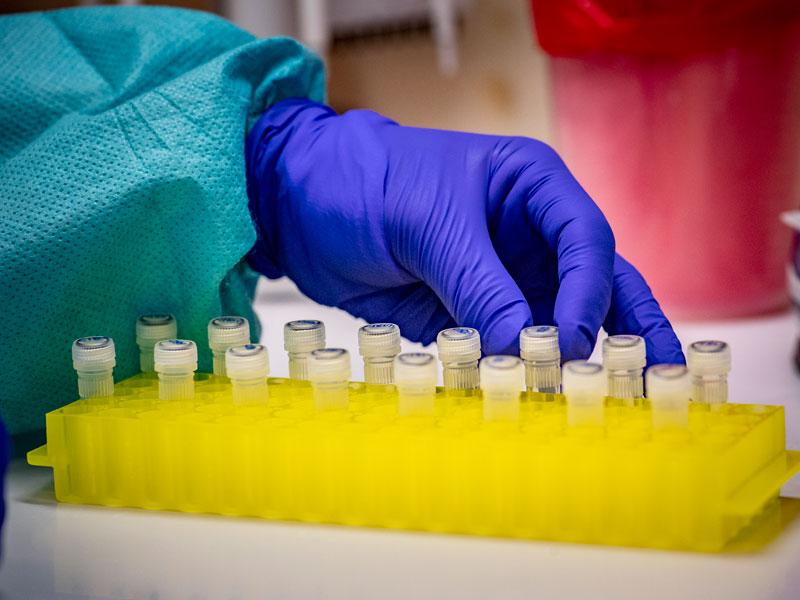Tulane School of Medicine helps community with COVID-19 testing
Distance and isolation are some of the best ways to reduce the spread of COVID-19, but in some circumstances neither of those options are possible, especially in healthcare and other facilities where people live in communal spaces. In such situations, implementing testing with a quick turnaround is one of the best ways to protect people from the highly contagious respiratory virus. Tulane University School of Medicine has stepped up to help the New Orleans community test those who work or live in these spaces.
Tulane not only screens its own faculty, staff, students and employees, but also supports the New Orleans Ernest N. Morial Convention Center, Orleans Parish Prison, and a local mental health care facility. This work has allowed such facilities to implement contact tracing, and to prevent further spread as they are able to quickly identify, isolate and treat patients with the virus.
“I think it’s part of our mission as an educational and clinical institution to help the community,” said Dr. Patrice Delafontaine, professor of medicine and executive dean of Tulane School of Medicine. “When we started, we were doing about 50 tests a day. We processed 1,200 tests a day last week, and are in the process of purchasing equipment to enable us to further increase our capacity for testing.”
The School of Medicine quickly repurposed a research lab in March to help answer the demand for testing in New Orleans. The Tulane lab can process tests on site and issue results in as little as 24 hours, and often the same day. This is important as it saves valuable time that could be wasted in shipping samples to the state lab in Baton Rouge, where on top of time spent in transit, the heightened demand can cause results can take days - or even weeks - to obtain.
The School of Medicine test was implemented by Tulane virologist Bob Garry and his team in collaboration with Drs. Xiao-Ming Yin and Di Tian in the Department of Pathology. It is based on the PCR (Polymerase Chain Reaction) test being used by the CDC, which determines a positive or negative diagnosis through a nasal swab.

